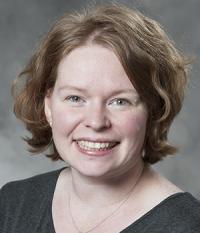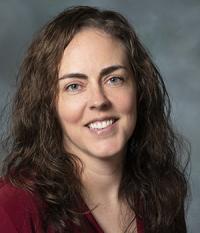Antimicrobial and Diagnostic Advisement Program (ADAP)
Saint Luke’s Health System Antimicrobial and Diagnostic Advisement Program (ADAP) aims to promote the judicious use of antimicrobials, suppress antimicrobial resistance, decrease the negative effects of unnecessary antimicrobial use, and improve outcomes for the patients we serve.
The Centers for Disease Control and Prevention (CDC) estimates that more than 30 percent of antibiotics are prescribed unnecessarily. Antimicrobial resistance is a major threat to health care environments and patients across the country. According to the CDC, antimicrobial resistance has resulted in 2.8 million infections and more than 35,000 deaths every year.
The ADAP launched in August 2015 following a successful pilot at Saint Luke’s North Hospital. The program’s core team is composed of an infectious disease physician, infectious disease pharmacists, and data scientists. The team is supported by a committee of specialists in the area of infectious diseases, including physicians, pharmacists, microbiologists, infection prevention nurses, and system leadership.
Mission and vision
The mission of the program’s staff is to achieve the best possible antimicrobial-related outcomes across Saint Luke’s Health System. The team helps ensure that optimal selection, dosage, and duration of antimicrobials is used for treating or preventing disease while minimizing possible side effects.
The group’s vision is to improve the use of antimicrobials and the quality of care delivered to patients.
National attention
Ahead of the curve, the ADAP team is well-positioned to exceed all established and pending regulatory standards. The team’s proactive work helps patients receive the safest, quality care possible.
Program expansion
Antimicrobial stewardship is needed in both inpatient and outpatient settings to appropriately influence antimicrobial use. In 2019, the ADAP expanded from an inpatient-only program to also cover ambulatory care. With the expansion, the ADAP now serves patients in nearly 300 locations, including physician practices throughout the Kansas City area.
ADAP team
Many individuals at Saint Luke's contribute to the program’s success. Clinical initiatives of the program are vetted through the ADAP Pharmacy and Therapeutic subcommittee and structural leadership is provided by a system oversight committee.
Sarah Boyd, MD, Medical Director
Education
- Combined BA/MD program, University of Missouri–Kansas City
- Internal Medicine Residency, University of Missouri–Kansas City
- Infectious Disease Fellowship, University of Missouri–Kansas City
Nick Bennett, PharmD, BCPS, BCIDP
Education
- Pre-pharmacy, University of Iowa
- Doctor of Pharmacy, Creighton University
Post-graduate training
- Saint Luke’s Hospital of Kansas City
Laura Aragon, PharmD, BCIDP
Education
- Doctor of Pharmacy, University of Missouri–Kansas City
Post-graduate training
- University of Florida Health Shands Hospital (PGY-1 and PGY-2, ID)
Kathryn (Kat) Burnett, PharmD, BCIDP
Education
- Doctor of Pharmacy, University of Missouri–Kansas City
Post-graduate training
- University Health Truman Medical Center (PGY-1)
- Kansas City VA Medical Center (PGY-2, ID)
Tim Berry, PharmD, BCPS
Education
- Pre-pharmacy, Southwest Baptist University
- Doctor of Pharmacy, University of Missouri–Kansas City
Post-graduate training
- Saint Luke’s Hospital of Kansas City
Erin Johnson, MS, MBA
Education
- Bachelor of Science, Colorado State University
- Master of Science, Rockhurst University
- Master of Business Administration, Rockhurst University
Research & Publications
Saint Luke’s has long been committed to innovative care fueled by commitment to novel research. Infectious disease research has vast potential in our health system and is especially relevant since our network of hospitals is representative of the nation at large.
Examples of our research and publications include:
- Understanding inpatient antimicrobial stewardship metrics
- Centralized communication of blood cultures leveraging antimicrobial stewardship and rapid diagnostics
- Pharmacy-driven assessment of appropriate antibiotic selection in patients with reported beta-lactam allergy
- Leveraging procalcitonin, PCR testing, and clinical decision support to decrease antibiotic use in viral illness
- Templated microbiology comments with candiduria to enhance antimicrobial stewardship





